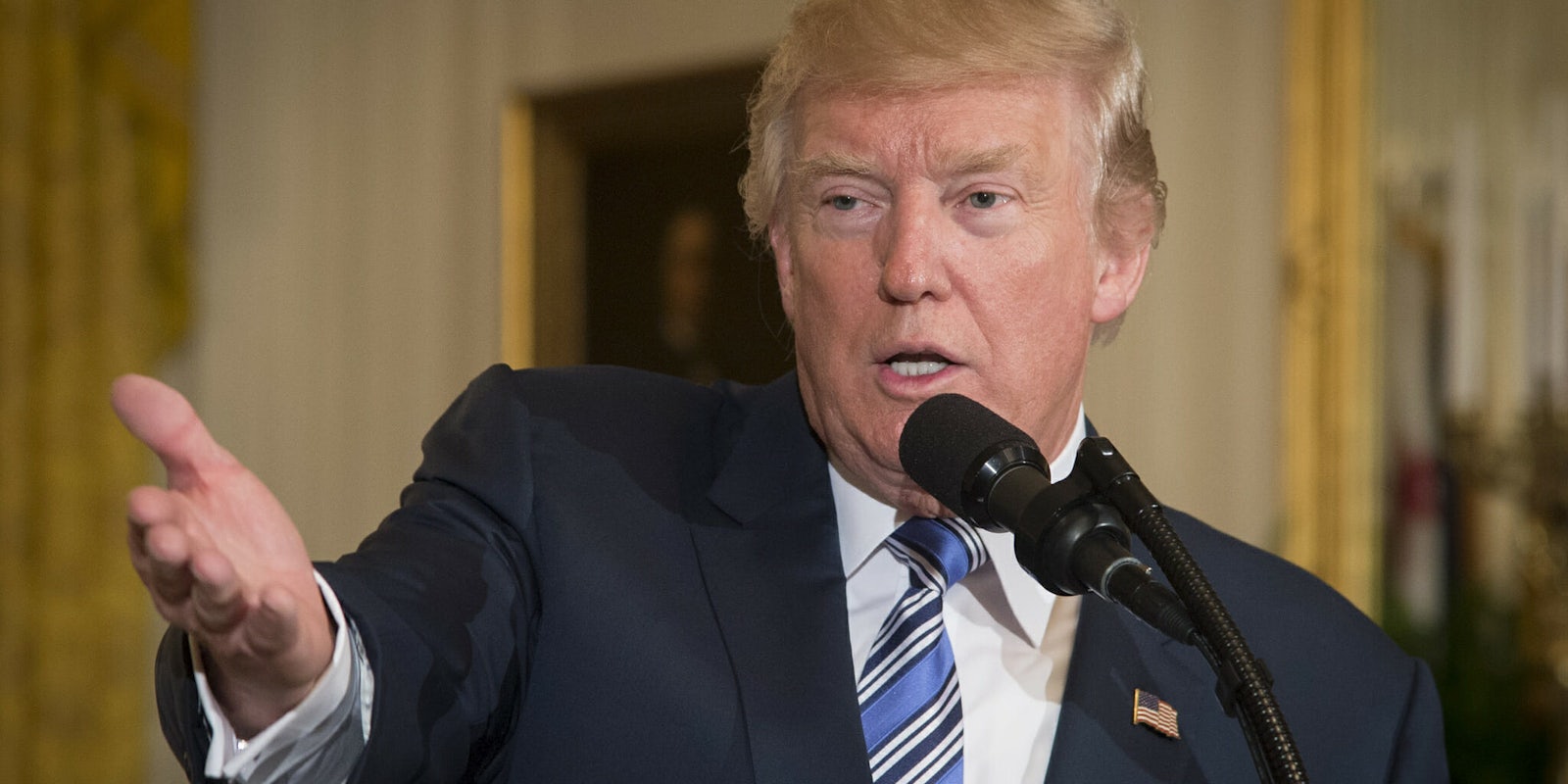President Donald Trump appears to have no idea what health insurance actually costs.
In an interview with the New York Times published on Wednesday evening, after saying “I know a lot about healthcare,” the president offers this example:
“From the moment the insurance, you’re 21 years old, you start working and you’re paying $12 a year for insurance, and by the time you’re 70, you get a nice plan.”
While this seems like an off-the-cuff remark, Trump said nearly the same line in a May interview with the Economist—although, the figures were slightly different.
Insurance is, you’re 20 years old, you just graduated from college, and you start paying $15 a month for the rest of your life and by the time you’re 70, and you really need it, you’re still paying the same amount and that’s really insurance.
In other words, Trump is suggesting that most Americans have access to health insurance that costs about the same as Netflix.
The point Trump appears to be making is that young, healthy people do not necessarily need exhaustive health insurance coverage (despite the fact that anyone can fall seriously ill at any point). But the numbers he’s throwing out—even the $15 per month figure—is wildly inaccurate for most Americans. Given Republican lawmakers’ current attempts to overhaul the nation’s health insurance structure, this detail may give some voters cause for concern.
According to the Kaiser Family Foundation, an American with health insurance through their employer pays an average of $1,255 per year (just over $100 per month), as of 2015. That number fluctuates depending on where you live, with people in Hawaii paying an average of just $544 per year while those in other states pay over $1,500. The Department of Health and Human Services reports that, in 2016, 72 percent of Americans had access to plans that cost $75 per month or less, after tax credits afforded under the Affordable Care Act. Sixty-five percent reportedly have access to plans that cost $50 or less per month.
Although it is possible some people pay $12 per year or less for insurance, that is likely only a result of a generous employer contribution that lowers the cost for employees as part of their benefits package. On average, however, this is far from normal.
Trump’s comments about the cost of healthcare carry more weight as the Senate attempts to repeal the Affordable Care Act, or Obamacare, which the Congressional Budget Office estimates will result in 32 million more people without health insurance.


